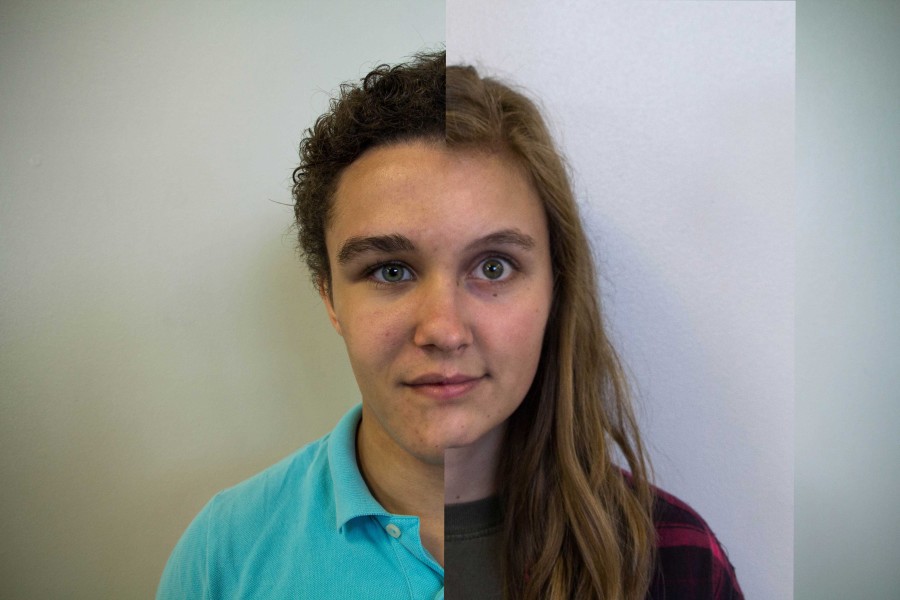Reporters tackle feminism
Kenneth Palmer and Maddie Birchfield discuss the current face of feminism
August 28, 2014
Maddie Birchfield: I am a feminist and a humanist. For some reason, the idea has risen that one can’t be both. This is due to the muddling of the meaning of the word “feminism.”
I am a feminist because feminism is the belief that women and men are equal, and should be treated as such. It scares me to think that the movement has become something women are afraid to join. We have been given a bad reputation, and I want to try to correct this, if only in the minds of the Free State student body.
Celebrities, such as Shailene Woodley, Taylor Swift and Madonna, say that they aren’t feminists—they label themselves as humanists because they are apprehensive to associate with feminism, even if it means exactly what they believe. These powerful female personas, along with most women, want females to have strength against our patriarchal society.
This strength is not an uprising of lesbians out to kill off the male gender and take over the world in a “Planet of the Apes” type scenario. We just want to be treated as humans, seeing as that is what we are.
I am a feminist because when I grow up, I will work hard at my job, but I will never work hard enough to earn the pay of the man in my same position.
I am a feminist because I love cooking and cleaning, but I love doing those activities to please myself, not a man.
I am a feminist because I respect my body, and I wish to see every woman have the same confidence I do.
I am a humanist because I see no difference in the makeup of myself and the boys walking by in the hallway.
I want my children to grow up believing that they do things well and can express themselves in any form they want. Children should not be taught that they “run like a girl,” or that “boys can’t cry.” We are all people, and we should all try to be whole people, exploring every inch of whom one can be.
Now, society has limited itself to gender specific roles and obligations, and in doing so it hurts the population’s ability to become full of whole humans.
Being anti-feminist not only sets back the rights of women, but it sets back the human race as a whole.
Kenneth Palmer: The debate around feminism today is full of tumult, mostly due to misunderstanding of the philosophy itself. People often claim feminism is too extreme or that it has nothing to offer them. This is especially true of boys, and I would like to explain exactly why that stance is so detrimental.
First, let us be totally clear about what feminism really is and why everyone should feel safe discussing it. While feminist theorists often extend the implications of the definition, the focal point of feminism is equality. Treating all feminists as extremists isn’t accurate; it is like refusing to differentiate all Christians from our friends at the Westboro Baptist Church.
Feminism aims to ensure equal rights— let’s remember that the United States has yet to pass an Equal Rights Amendment—not a tyrannical matriarchy. Men will not be silenced, and ideally oppression should see a considerable reduction overall.
The very fact that hearing the “f-word” mortifies so many men and women is indicative of the current state of affairs. The fear is based on the reality that right now, women are still oppressed in major ways both in the United States and elsewhere, and some men genuinely worry that if women gained social empowerment, men may face the same oppression that women do today.
Yet, focusing on giving men solace about what they will retain if equality finally arrives is not productive, and to pretend that men are the only opponents of feminist ideology is simple-minded. Both genders perpetuate a system of patriarchy. Uh oh, I just alienated 75 percent of my audience who do not dare to think beyond Urban Dictionary’s first definition of the term:
“A term coined by feminists, to blame men for all their problems.”
This definition, probably for the sake of humor, is fundamentally false. The theory of patriarchy does not in any way claim that men solely cause sexism or that women are the only victims. The problem with patriarchal systems is that they are deleterious to everyone because they take traits that anyone can have and confine them in a single gender. Men are encouraged to be boisterous and strong, and only females are allowed to be nurturing and gentle.
These roles are not the result of a some inexorable biological process. Sure, there are predispositions, but the influence of those factors are minimal compared to the social imposition of gender roles.
I envision a world in which assertiveness is not an outlier for females and kindness is not purged from boyhood. A world in which we collectively reject the notion that violence is just “boys being boys” and trepidation is just a practical expectation for girls.
Maybe confidence and kindness, along with the whole array of other human qualities, can someday simply be chalked up to “children being children.”









